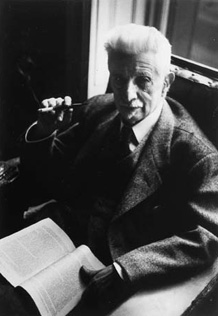 TODD SHEPARD explores how imperialism and transnational developments shaped late-twentieth-century France; his studies and teaching have concentrated on modern European and colonial North African history, with special attention to their intersections.
TODD SHEPARD explores how imperialism and transnational developments shaped late-twentieth-century France; his studies and teaching have concentrated on modern European and colonial North African history, with special attention to their intersections.
His first book, The Invention of Decolonization: The Algerian War and the Remaking of France (2006), is a history of the close of the Algerian War and the difficult re-negotiation of French state structures and national identity that resulted. It was awarded both the American Historical Association’s 2006 J. Russell Major Prize and the Council of European Studies’ 2008 Book Prize (for best first book in European studies published in 2006-2007). 1962. Comment l’indépendance algérienne a transformé la France (2008; 2012) is a revised and updated French translation. Shepard subsequently expanded the research that led to this book to produce Voices of Decolonization: A Brief History with Documents (2014).
Shepard’s second monograph appeared in French, as Mâle décolonisation. “L’homme arabe” et la France, de l’indépendance algérienne à la révolution iranienne (2017), and then in English, as Sex, France, and Arab Men, 1962-1979 (2017). It is a study of how “sexual Orientalism” re-emerged in post-decolonization French politics and discussions. Over the course of the 1960s and ‘70s, what he names as “sex talk”, around questions such as far right politics, May ’68, prostitution, the “white slave trade,” gay rights, sexual libertinism, the act of sodomy, and rape explicitly grappled with questions of empire, the Algerian war, colonial violence, and post-decolonization racism. The book shows that, although French discussions about sex in the 1970s can be fruitfully mapped onto a chronology of crises and evolutions that closely paralleled that of other national debates, what made them particular—what made them “French,” rather than “Western” or “late modern”—were the central roles that invocations of “Arab men” and Algeria played in them.
He is now at work completing, “Affirmative Action and the End of Empires: ‘Integration’ in France (1956-1962)” and the Race Question in the Cold War World.” Parts of this book project have appeared in Monde(s) (2012), International Journal of Middle Eastern Studies (2013) and the Journal of Global History (2011), as well as in contributions to The French Republic and The French Colonial Mind (both 2011). It relies on a transnational lens to examine how the French grappled with their relationship to Muslim “Arabs.” This project resembles Sex, France, and Arab Men, 1962-1979 in another way, too, as it takes a discussion that has centered on “identity” and foregrounds how power and institutions were also at stake, and changed as a result.
Shepard’s more recent work seeks to decenter categories that were crucial to his first book. This is also visible in his commitment to expanding our rethinking of French history beyond empire: the so-called imperial turn remains generative, yet we need to map colonial connections alongside other transnational and international developments. This is a project that underwrote the 2016 collection of essays, French Mediterraneans: Transnational and Imperial Histories, which he co-edited with Patricia M.E. Lorcin.
 ARTHUR O. LOVEJOY, professor of history at Hopkins from 1910 to 1939, is credited with the introduction of the interdisciplinary academic area known as the history of ideas. He founded the Journal of the History of Ideas and established the Hopkins History of Ideas Club. Professor Lovejoy was the first chairman of the Maryland chapter of the American Civil Liberties Union, and his opinions often appeared in the editorial pages of The Baltimore Sun. He also was a founder of the American Association of University Professors and a strong proponent of the right of faculty members to teach unencumbered by ideological restrictions. Dr. Lovejoy continued to produce books and articles up to his death in 1962.
ARTHUR O. LOVEJOY, professor of history at Hopkins from 1910 to 1939, is credited with the introduction of the interdisciplinary academic area known as the history of ideas. He founded the Journal of the History of Ideas and established the Hopkins History of Ideas Club. Professor Lovejoy was the first chairman of the Maryland chapter of the American Civil Liberties Union, and his opinions often appeared in the editorial pages of The Baltimore Sun. He also was a founder of the American Association of University Professors and a strong proponent of the right of faculty members to teach unencumbered by ideological restrictions. Dr. Lovejoy continued to produce books and articles up to his death in 1962. TODD SHEPARD explores how imperialism and transnational developments shaped late-twentieth-century France; his studies and teaching have concentrated on modern European and colonial North African history, with special attention to their intersections.
TODD SHEPARD explores how imperialism and transnational developments shaped late-twentieth-century France; his studies and teaching have concentrated on modern European and colonial North African history, with special attention to their intersections.